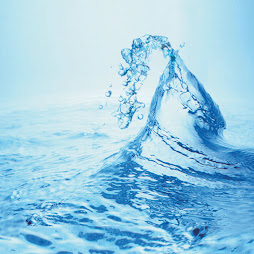The body's initial responses to dehydration are thirst to increase water intake along with decreased urine output to try to conserve water. The urine will become concentrated and more yellow in color.
As the level of water loss increases, more symptoms can become apparent. The following are further signs and symptoms of dehydration:
- dry mouth,
- the eyes stop making tears,
- sweating may stop,
- muscle cramps,
- nausea and vomiting,
- heart palpitations, and
- lightheadedness (especially when standing).
- the eyes stop making tears,
- sweating may stop,
- muscle cramps,
- nausea and vomiting,
- heart palpitations, and
- lightheadedness (especially when standing).
The body tries to maintain cardiac output (the amount of blood that is pumped by the heart to the body); and if the amount of fluid in the intravascular space is decreased, the body has to increase the heart rate, which causes blood vessels to constrict to maintain blood pressure. This coping mechanism begins to fail as the level of dehydration increases.
With severe dehydration, confusion and weakness will occur as the brain and other body organs receive less blood. Finally, coma and organ failure will occur if the dehydration remains untreated.
What to do:
In our daily lives, there are less chances of such acute dehydration, but even mild dehydration leads to health implications. Therefore, it is advised to stay fully hydrated during the course of the day by making a conscious effort to drink enough water. A great way to stay fully hydrated is to consume alkaline ionized water instead of the acidic bottled water or the impure tap water. Alkaline ionized water is up to 6 times more hydrating than tap or bottled water and has many health benefits because of its higher pH and the fact that it is electrically charged.
To learn more about alkaline ionized water and to purchase a water ionizer, please visit www.ChansonWater.com




No comments:
Post a Comment